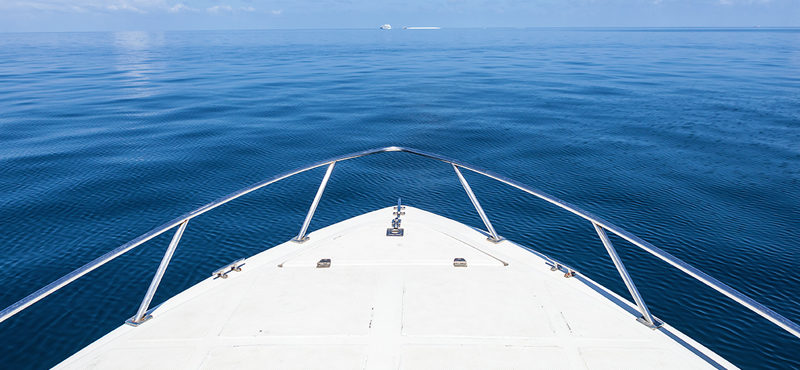Communication is essential in every aspect of life, but it is especially important at sea, where ships are isolated and sometimes far from the nearest ports. On larger vessels, if there is a problem aboard, being able to immediately communicate with the right people without delay can be the difference between life and death.
To ensure large merchant vessels and even smaller yachts operate safely and make it to their destination without any mishaps, reliable and robust communication systems and procedures should be an essential part of any voyage. Here are some practical methods and equipment you can use to improve your ship’s communication while at sea.
Types of Equipment
Before investing in an expensive communications network for your vessel, it is important to consider the size and needs of the vessel to determine what system will be best suited for the job.
- Analog Two-Way Radio Systems – For the majority of vessels, particularly among smaller yachts, two-way analog radio systems that use either VHF or UHF bands are the simplest and most effective method and communication available today.
This is by far the most affordable communication system you can use at sea to communicate with other people aboard your vessel. Although effective, analog radio-to-radio communication does not always give the best coverage and may struggle in larger vessels. For that reason, two-way radio systems are best used in vessels under 50m in length.
- Digital Mobile Radio (DMR) – DMRs is a robust communication system that works in yachts of all sizes, making it an ideal solution for vessels over 50m or when analog two-way radio systems won’t cut it.
DMR networks consist of single or multiple repeaters linked together by a Cat5 network cable, transmitting signals to provide a more stable and secure connection between devices. Depending on the size of your vessel and personal needs, this is the ideal communication system striking a balance between cost and effectiveness.
- Terrestrial Trunked Radio (TETRA) – If you need the absolute best communication system for your vessel, TETRA is a solution that public safety, police departments, and first responders throughout the world use. Like DMR networks, TETRA systems use multiple onboard repeaters to provide greater coverage and reliable digital radio communications.
These systems are waterproof, can be integrated with ship alarms, and feature full duplex private calls. TETRA is the most robust and secure method of communicating on board large vessels that have critical needs, such as commercial or merchant vessels.
Practical Communication Procedures
In addition to using the right communication system for your vessel, there are some methods and procedures you can follow to improve your ship’s communication while at sea. In the case of commercial or merchant vessels, chances are you are in a busy environment with limited time. For that scenario, you should try to be brief when relaying messages, including necessary information in your messages to avoid confusion and speed the response time in the case of an emergency, and then focus intently when receiving a response.
You should also always keep your radios on while at sea so they are ready for use when required, and also keep checking the quality of your transmission and reception to ensure everything is working correctly. Finally, make sure your GPS navigator is correctly linked to the radio so it can transmit your position in the case of an emergency.
Improve Your Communication At Sea For Safer Voyages
Having the right communication networks and procedures while at sea can dramatically improve your crew’s efficiency and get you home safely. If you are looking to equip your vessels with a radio network, Highland Wireless offers a variety of systems and can assist with installation and training. Reach out today for a quote.

